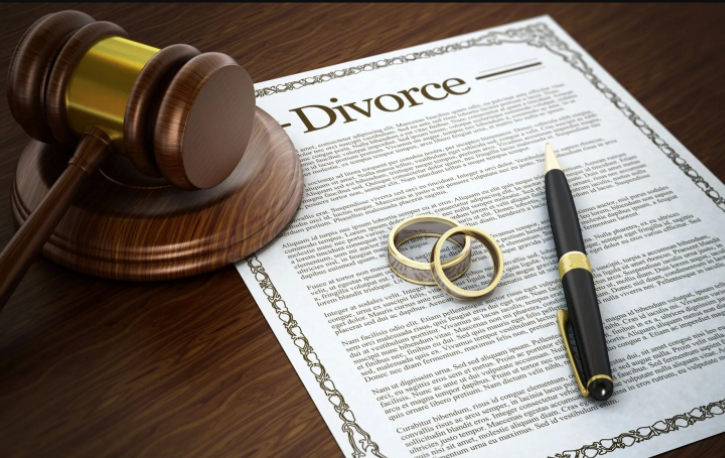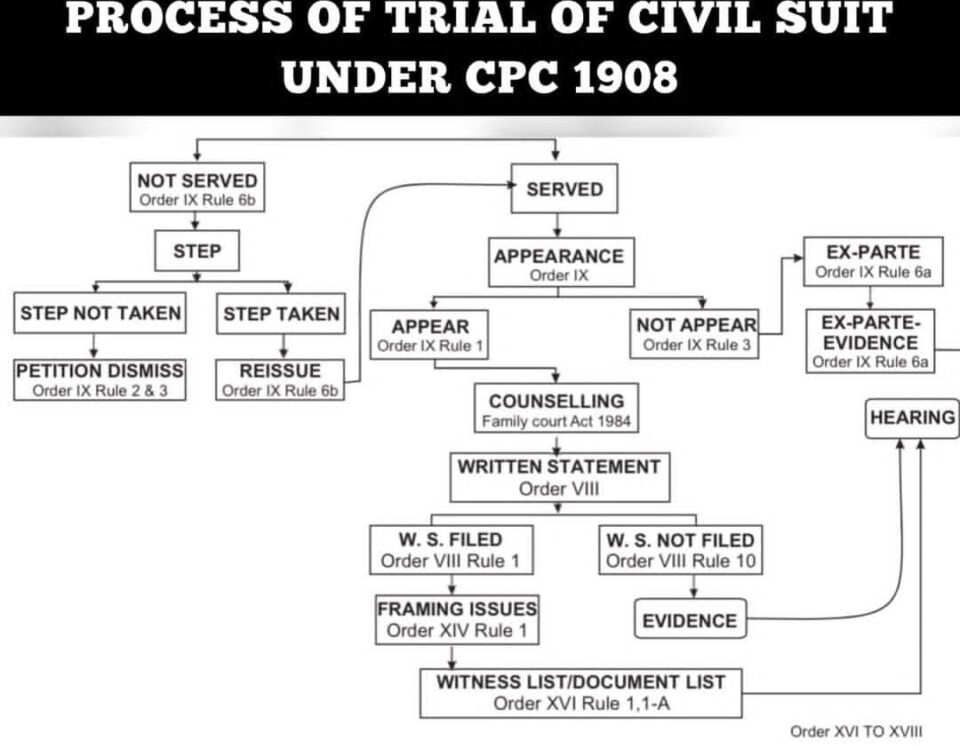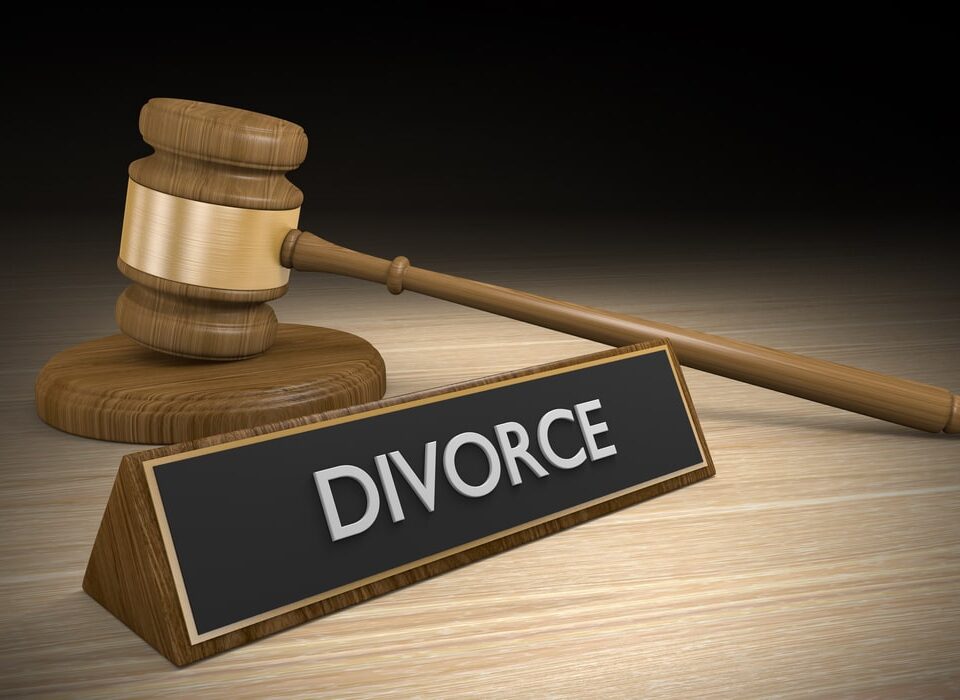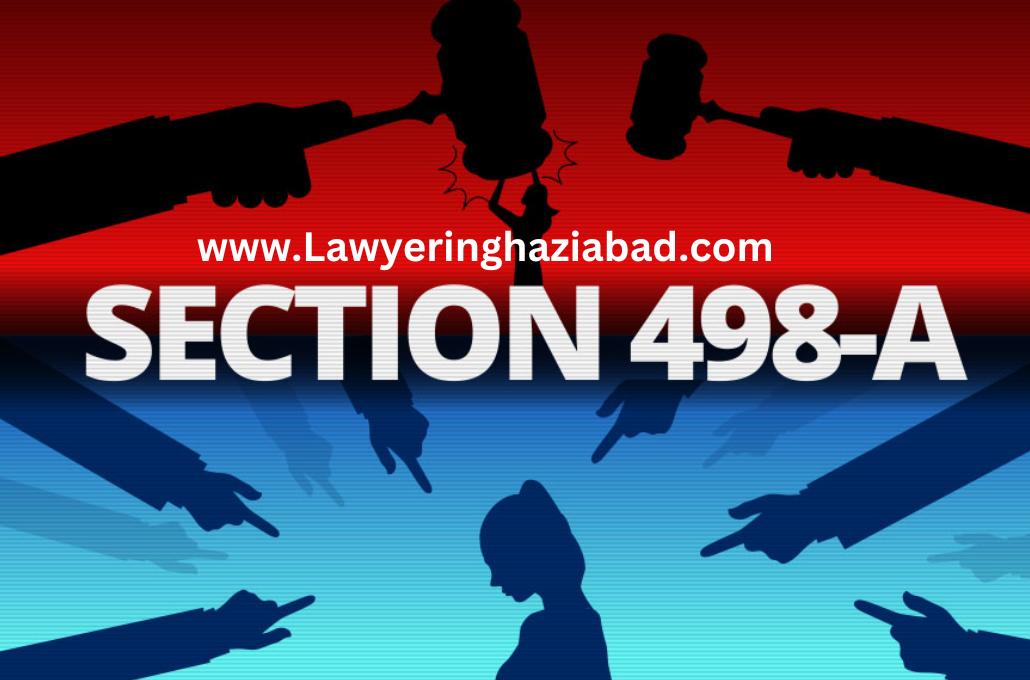
Lawyer in Ghaziabad is a leading law firm with its presence in India and abroad, operating out of offices in: Delhi, Noida and Ghaziabad. It is one of the best law firms in Delhi, Noida and Ghaziabad with an exceptional experience and reputation in the legal arena.
- Legal Consultation
- Transparent Communication
- Results-Oriented
Section 498A Lawyer In Ghaziabad:
Legal Safeguards Against Marital Cruelty
Legal Safeguards Against Marital Cruelty
Your Trusted Ally in Section 498A Cases: Legal Protection Against Marital Cruelty
Section 498A of the Indian Penal Code (IPC), introduced in 1983, is a crucial legal provision aimed at protecting married women from cruelty, harassment, and dowry-related abuse. It criminalizes any act by the husband or his relatives that causes physical or mental harm, drives a woman to suicide, or forces her or her family to meet unlawful dowry demands. The law recognizes that cruelty includes not only physical violence but also emotional and financial abuse, addressing the various forms of harassment women may face in marriage. Section 498A is a cognizable and non-bailable offense, allowing the police to register and investigate complaints swiftly. Convictions can lead to imprisonment of up to three years and fines, acting as a strong deterrent. While it empowers women to combat abuse, Section 498A has faced criticism for alleged misuse in some cases, where false complaints are lodged during marital disputes. Courts emphasize the importance of thorough investigations to ensure justice for genuine victims while preventing misuse. Despite its challenges, Section 498A remains a vital tool in addressing marital cruelty, promoting gender equality, and protecting the dignity of women, ensuring safer, more just marital relationships.
What is Section 498A IPC?
Section 498A of the Indian Penal Code (IPC) is a legal provision introduced in 1983 to protect married women from cruelty inflicted by their husbands or in-laws. It addresses various forms of abuse, including physical, emotional, and financial cruelty, often tied to dowry demands or harassment. Under this law, cruelty is defined as any willful act that causes grave injury to the woman’s physical or mental health, drives her to suicide, or seeks to coerce her or her family into meeting unlawful dowry demands. It includes physical violence, threats, persistent humiliation, and harassment that causes mental trauma. Even actions like withholding financial support or creating a hostile living environment fall under its purview. The offense under Section 498A is cognizable, non-bailable, and non-compoundable, ensuring swift investigation and legal proceedings. Once a complaint is filed, the police can arrest the accused and conduct an inquiry. If found guilty, the husband or his relatives can face imprisonment of up to three years along with fines. While Section 498A provides vital protection for women, it has faced criticism for being occasionally misused in marital disputes, leading to false accusations against husbands and their families. To address this, courts have issued guidelines for fair investigation to prevent harassment of innocent individuals. Despite these challenges, Section 498A remains a crucial legal safeguard, empowering women to seek justice and deterring acts of cruelty within marriages. It underscores the commitment to ensuring dignity and equality for women in the family system. Proper awareness and balanced enforcement of this law can help address issues of domestic violence and create a safer environment for women.
- Harassment for Dowry:
- Mental or Physical Harm:
- Driving a Woman to Suicide:
Harassment for dowry is one of the most common forms of cruelty that Section 498A seeks to address. It involves any act of coercion or harassment by the husband or his family members demanding an unlawful dowry. In many cases, this demand for dowry can manifest as continuous pressure, threats, or intimidation, which can lead to severe emotional and physical distress for the woman. The law recognizes that dowry-related harassment is not limited to financial demands alone, but can also extend to abusive behavior, such as verbal insults or threats of violence if the demands are not met. This provision is a response to the social practice of dowry, which has historically been a source of oppression and exploitation, particularly for women. By criminalizing dowry-related harassment, Section 498A offers women a legal route to seek protection against such demands, and ensures that no woman is forced to endure financial or emotional abuse in the name of dowry. The law helps prevent situations where women are treated as commodities to be "bought" with dowry, ensuring that their rights to safety, dignity, and equality are upheld. It serves as a strong deterrent against the practice of dowry, contributing to the overall fight against gender-based violence in India.
Section 498A also covers cases where the conduct of the husband or his relatives endangers the mental or physical health of the woman. Physical harm may involve any form of violence such as hitting, beating, burning, or other forms of physical assault that cause injury to the woman. Similarly, mental harm includes emotional abuse such as constant insults, belittling, and humiliation, which can have long-term psychological effects on the woman. The law recognizes that such conduct is equally damaging to a woman's well-being, as it can lead to severe mental health issues, including depression, anxiety, and post-traumatic stress disorder. Mental and physical harm are often interconnected, as emotional abuse can lead to physical reactions, such as self-harm, eating disorders, or even attempts to escape the abusive environment. This comprehensive approach by Section 498A ensures that both visible and invisible forms of abuse are addressed under the law. It emphasizes that cruelty is not just limited to physical violence but extends to any conduct that undermines the woman’s health, stability, and emotional well-being. By criminalizing both forms of abuse, Section 498A ensures that women have legal recourse to protect themselves from toxic and harmful environments within their marriages, offering a safer and more supportive framework for victims of domestic abuse.
One of the most severe consequences of marital cruelty is when the victim is driven to the extreme step of attempting or committing suicide. Section 498A takes this matter very seriously, as it criminalizes any action that compels a woman to take such drastic measures. Often, the cumulative effects of mental and physical abuse, coupled with the pressures of dowry demands and emotional trauma, can lead a woman to believe that suicide is her only escape from the unbearable circumstances she faces. This provision of the law aims to protect women from being subjected to such dire situations by ensuring that those responsible for pushing them to the brink of suicide are held accountable. In many cases, prolonged harassment, threats, or isolation can make the woman feel trapped with no support or recourse, leading her to despair. Section 498A recognizes the seriousness of such situations and offers a mechanism for swift intervention and legal protection. The law not only provides a means to hold abusers accountable but also sends a strong message that driving a woman to suicide is a grave offense. By criminalizing such acts, the law aims to create a safer environment for women, where they are not coerced or manipulated into taking extreme actions to escape their abusive circumstances.
Key Features of Section 498A
- Cognizable Offense: Police can register an FIR and begin an investigation without prior approval from a magistrate.
- Non-Bailable: Accused individuals must approach the court to secure bail.
- Punishment: Imprisonment for up to 3 years and a fine, as determined by the court.
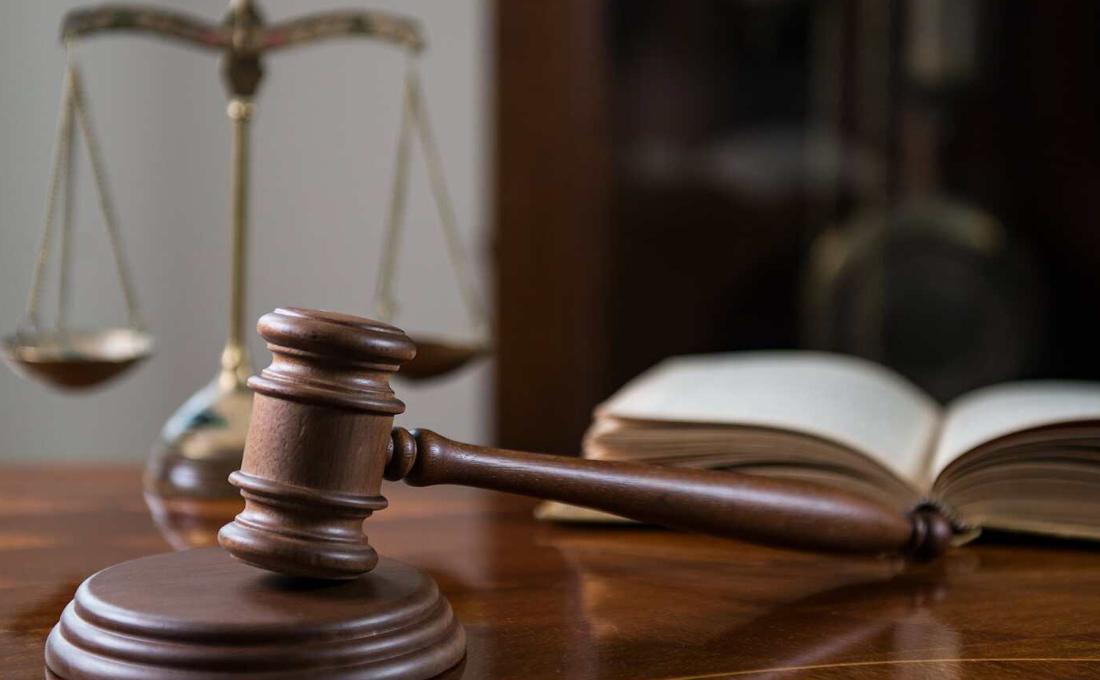
How to File a 498A Complaint
If you are facing cruelty in your marriage, filing a complaint under Section 498A of the Indian Penal Code (IPC) can provide legal protection and justice. The process begins by approaching the nearest police station where you can file a First Information Report (FIR) detailing the cruelty or harassment you have faced. The FIR should include specific instances of abuse, whether physical, emotional, or financial, along with supporting evidence like medical reports, messages, or witness statements. If you are unable to approach the police, you can file a written complaint directly with the Magistrate, who can then direct the police to investigate the matter. It is advisable to consult a lawyer to understand your rights and to ensure that the complaint is appropriately drafted and supported by evidence. Once the FIR is registered, the police will initiate an investigation and may arrest the accused if the allegations are substantiated. Since Section 498A is a cognizable and non-bailable offense, the accused can be arrested without prior approval, although recent judicial guidelines emphasize that arrests should be made only after a thorough inquiry to prevent misuse of the law. During the investigation, it is important to cooperate with authorities and provide any additional evidence or information they may require. If the police find enough evidence, they will file a chargesheet in court, and the trial will proceed to determine the accused’s guilt. Throughout the process, victims are entitled to protection, including restraining orders or safe housing, as provided under complementary laws like the Protection of Women from Domestic Violence Act. Filing a 498A complaint is a crucial step for women to assert their rights and seek justice against marital cruelty.
- File an FIR:
- Visit the nearest police station and lodge a complaint under Section 498A.
- Provide all necessary details, including instances of cruelty, dates, and names of the accused.
- Approach a Magistrate:
- If the police refuse to register your complaint, you can approach a magistrate directly to file the complaint.
- Submit Evidence:
- Collect and submit evidence such as medical reports, call logs, messages, financial records, or witness statements to strengthen your case.
Misuse of Section 498A
While Section 498A of the Indian Penal Code was introduced as a powerful legal safeguard to protect married women from cruelty and harassment, its misuse in certain cases has raised concerns. Instances have been reported where false complaints were filed against husbands and their families, often out of malice, personal vendettas, or to gain an upper hand in matrimonial disputes. Such misuse can lead to harassment of innocent individuals, damage to reputations, financial strain, and unnecessary legal battles. Recognizing the potential for misuse, the Supreme Court of India has issued guidelines to prevent arbitrary arrests and ensure a fair investigation. The court has emphasized that police authorities must conduct a thorough inquiry before making any arrests under Section 498A. In its landmark judgment in Rajesh Sharma v. State of Uttar Pradesh (2017), the court directed the establishment of family welfare committees to scrutinize complaints before legal action is taken. This step aims to filter out frivolous cases while ensuring genuine victims receive justice. Additionally, the courts have stressed the need for balance, urging complainants to use the law responsibly and discouraging its use as a weapon rather than a shield. The judiciary has also introduced measures such as allowing anticipatory bail for the accused, thus safeguarding their rights during the investigation. Despite these concerns, the misuse of Section 498A represents only a fraction of cases, and its importance as a tool for protecting women against cruelty should not be undermined. Addressing false complaints through stricter legal mechanisms and promoting awareness about responsible use of the law can help maintain the provision’s integrity while ensuring justice for both victims and the wrongfully accused. A balanced approach is essential to uphold the law’s intended purpose without compromising fairness.
- Conduct a preliminary inquiry before arrests are made.
- Ensure mediation between parties, if feasible, to avoid unnecessary legal escalation.
Additionally, individuals who are proven to have filed false complaints under Section 498A can face serious legal consequences. Filing a false complaint is considered an abuse of the legal system and can result in criminal charges for perjury or providing false evidence. The person making the false allegations could also be subjected to a defamation suit, where they could be required to compensate the falsely accused party for damages to their reputation and personal life. The law recognizes the importance of safeguarding against the misuse of Section 498A, ensuring that those who use it as a tool for revenge or to settle personal disputes are held accountable. The legal system is designed to provide justice for genuine victims of marital cruelty and harassment, but false claims can undermine the integrity of the process. Therefore, individuals who file baseless complaints should be aware of the serious consequences they could face under the law.
Remedies for the Accused
If you have been falsely accused under Section 498A, there are several legal remedies available to protect yourself. First, you can apply for anticipatory bail to avoid arrest during the investigation. Consulting an experienced lawyer is crucial to building a strong defense, as they can identify inconsistencies or lack of evidence in the complaint. You can also approach the High Court or Supreme Court to file a petition for quashing the FIR if the case lacks merit. Presenting evidence, such as messages, witnesses, or other proof of innocence, is essential during the trial. Additionally, you may file a defamation suit or seek legal action against the complainant for malicious prosecution, ensuring accountability for false accusations.
- Apply for Anticipatory Bail:
- Seek anticipatory bail to avoid immediate arrest and buy time to present your case.
- File for Quashing of FIR:
- Approach the High Court under Section 482 of the Criminal Procedure Code (CrPC) to quash baseless complaints.
- Gather Evidence:
- Collect evidence such as witnesses, financial records, or communication logs to counter false allegations.
Why Choose Us?
At Lawyer in Ghaziabad, we specialize in handling Section 498A complaints with the utmost sensitivity and legal expertise. Whether you are a victim seeking justice against cruelty or someone falsely accused, our experienced legal team is committed to protecting your rights and interests. We understand the emotional and legal complexities of 498A cases and offer personalized guidance tailored to your unique situation. If you are a victim of cruelty within your marriage, we help you file a strong complaint under Section 498A to ensure justice. Our team assists in drafting an accurate and detailed FIR that highlights specific instances of harassment, physical or emotional abuse, or dowry-related demands. We work closely with you to gather evidence, such as medical reports, witness statements, and communication records, to build a solid case. Additionally, we guide you through the entire legal process, from filing the complaint to representation in court, ensuring that your voice is heard and justice is served. For those who have been falsely accused, we provide robust defense strategies to protect you and your family. Our legal experts conduct a thorough review of the allegations, identifying any inconsistencies or lack of evidence in the complaint. We help you file for anticipatory bail to avoid unnecessary arrests and represent you effectively during the trial. Our focus is on safeguarding your rights while addressing the misuse of Section 498A to prevent further harassment.
- Filing Complaints: Assistance in drafting and filing complaints with proper documentation.
- Legal Representation: Expert advocacy in court proceedings to ensure a fair trial.
- Mediation and Resolution: Explore alternative dispute resolution methods to resolve matters amicably.
- Defense Against False Accusations: Protect your rights with robust legal defense strategies.
Contact Us
If you are dealing with a Section 498A case, whether you are a victim seeking justice or someone facing false allegations, our experienced legal team at Lawyer in Ghaziabad is here to provide the support you need. We understand that 498A cases can be highly emotional and complex, involving sensitive issues such as dowry harassment, cruelty, and domestic abuse. Our expert team is dedicated to offering personalized legal solutions tailored to your unique circumstances. Whether you are seeking to file a complaint for the cruelty you have experienced or defending yourself against wrongful accusations, we are committed to ensuring your rights are fully protected throughout the legal process. With years of experience in handling 498A cases, we offer thorough guidance, helping you understand the intricacies of the law, the potential legal outcomes, and the best course of action to take. We understand the gravity of these cases and the impact they can have on your personal and professional life. At Lawyer in Ghaziabad, we take a proactive approach to resolve your legal issues efficiently, whether through negotiation, mediation, or court proceedings. Don’t face the challenges of a 498A case alone—contact us today for a consultation, and let us help you navigate this difficult situation with confidence, working toward a fair and just resolution.

